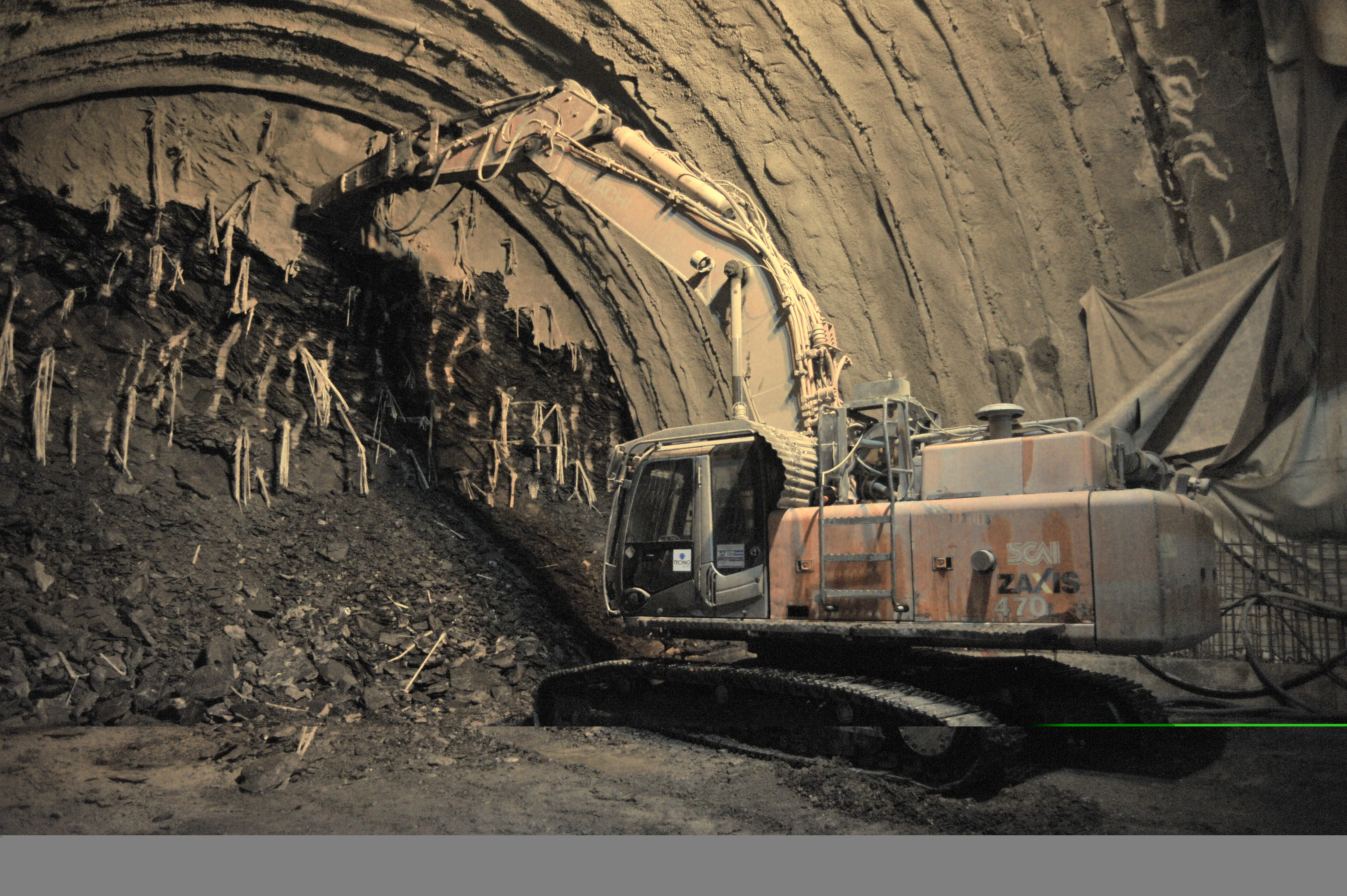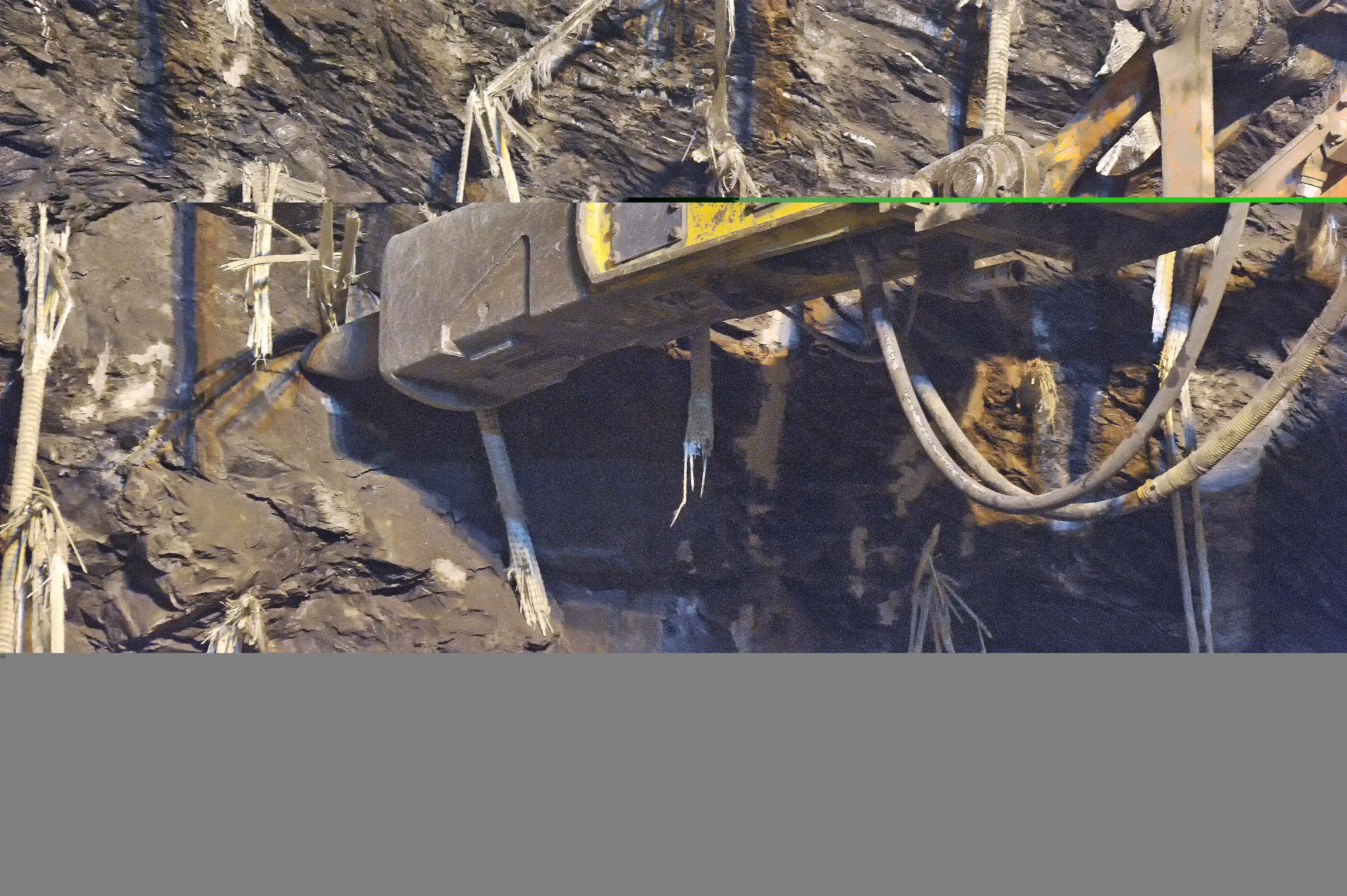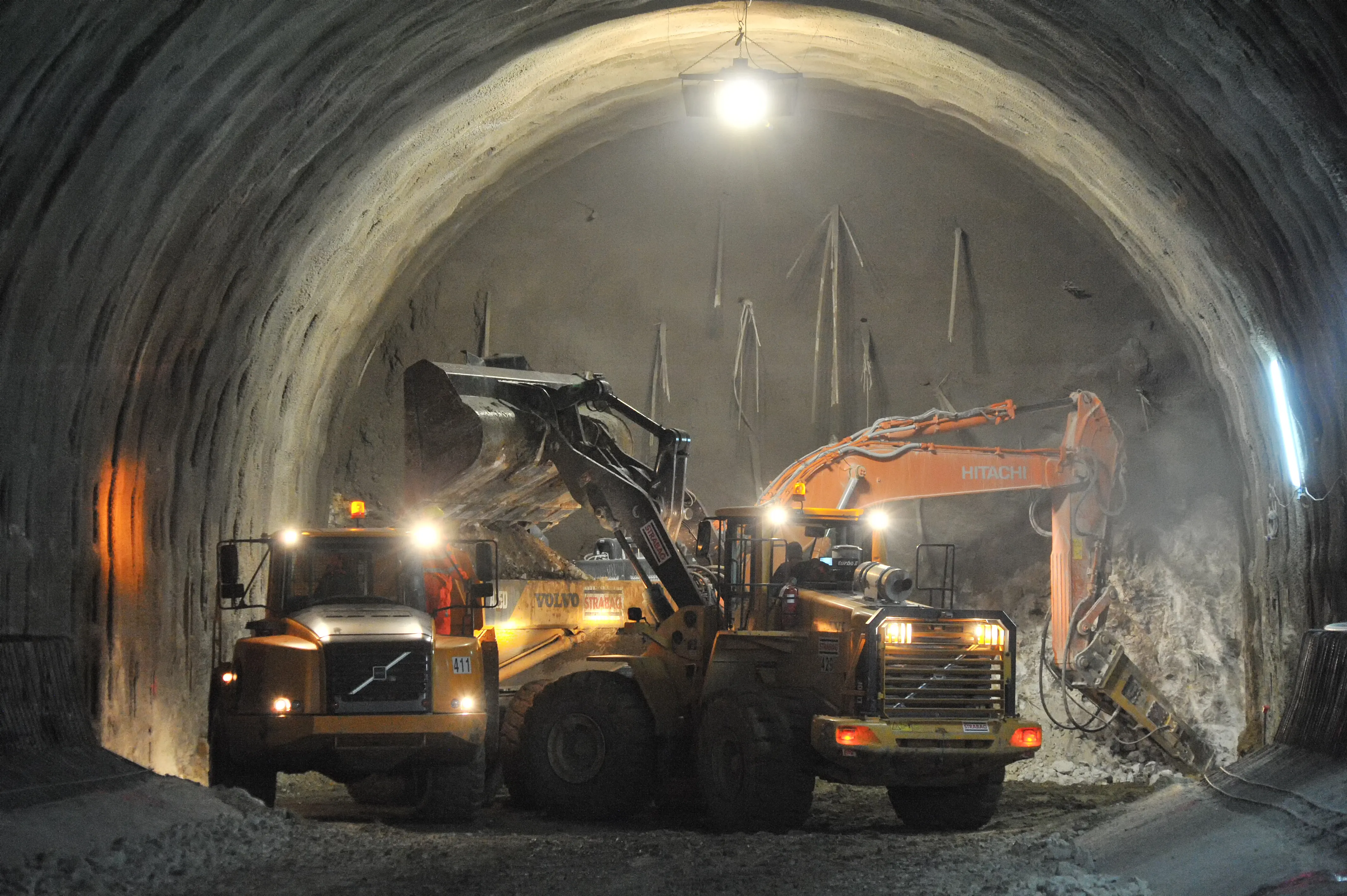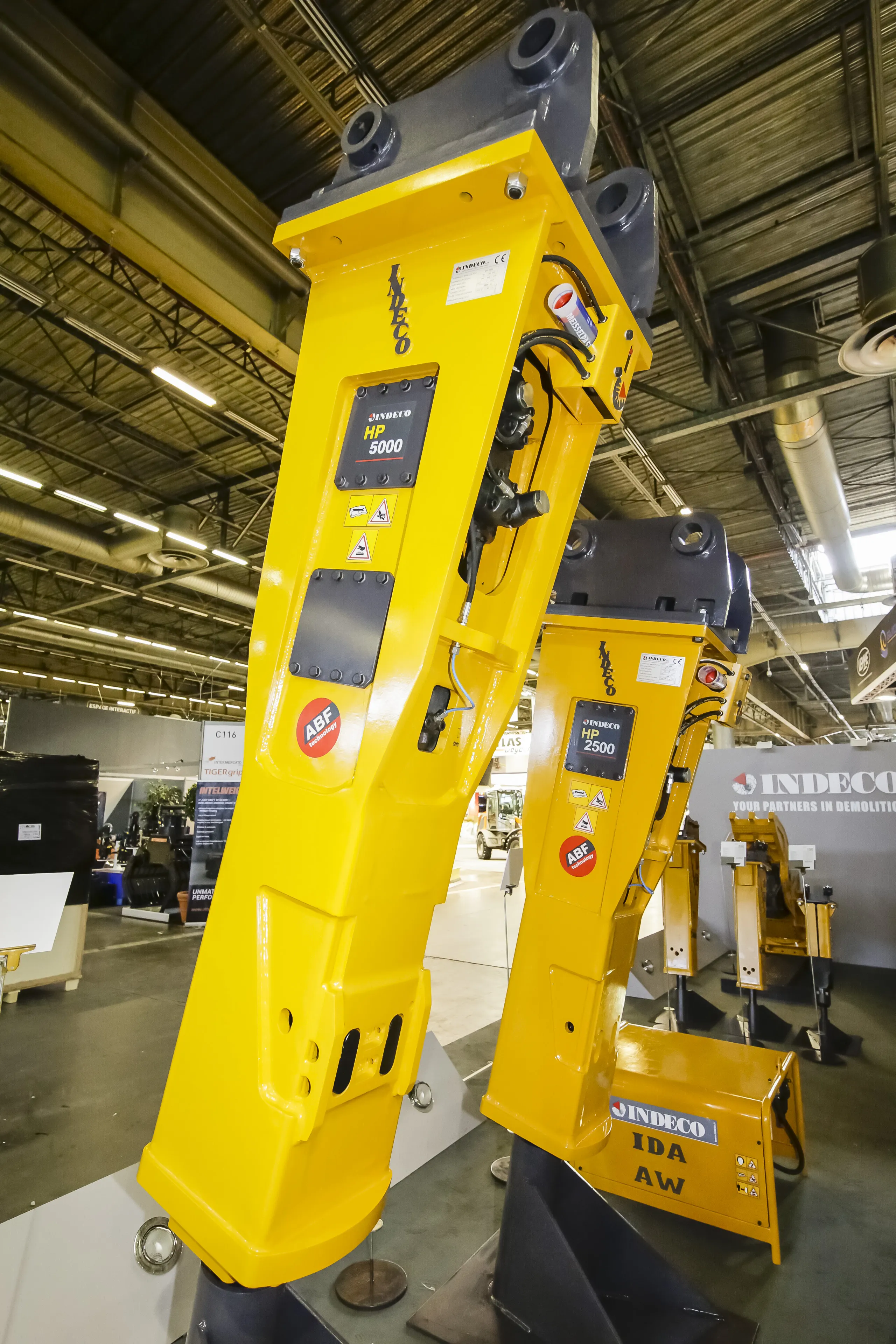Indeco breakers have been instrumental in excavating the Serra Rotonda Tunnel along the new Salerno-Reggio Calabria highway in southern Italy - Lucio Garofalo reports
The A3 Salerno-Reggio-Calabria highway runs for some 443km, linking the A1 Milano-Napoli with the southernmost part of the country. A tunnel is a major link on this highway and was originally built between 1966 and 1974 in an area where road construction can be a challenge due to orography, geology and seismicity. Since 2001, the A3 has bee
December 2, 2014
Read time: 3 mins
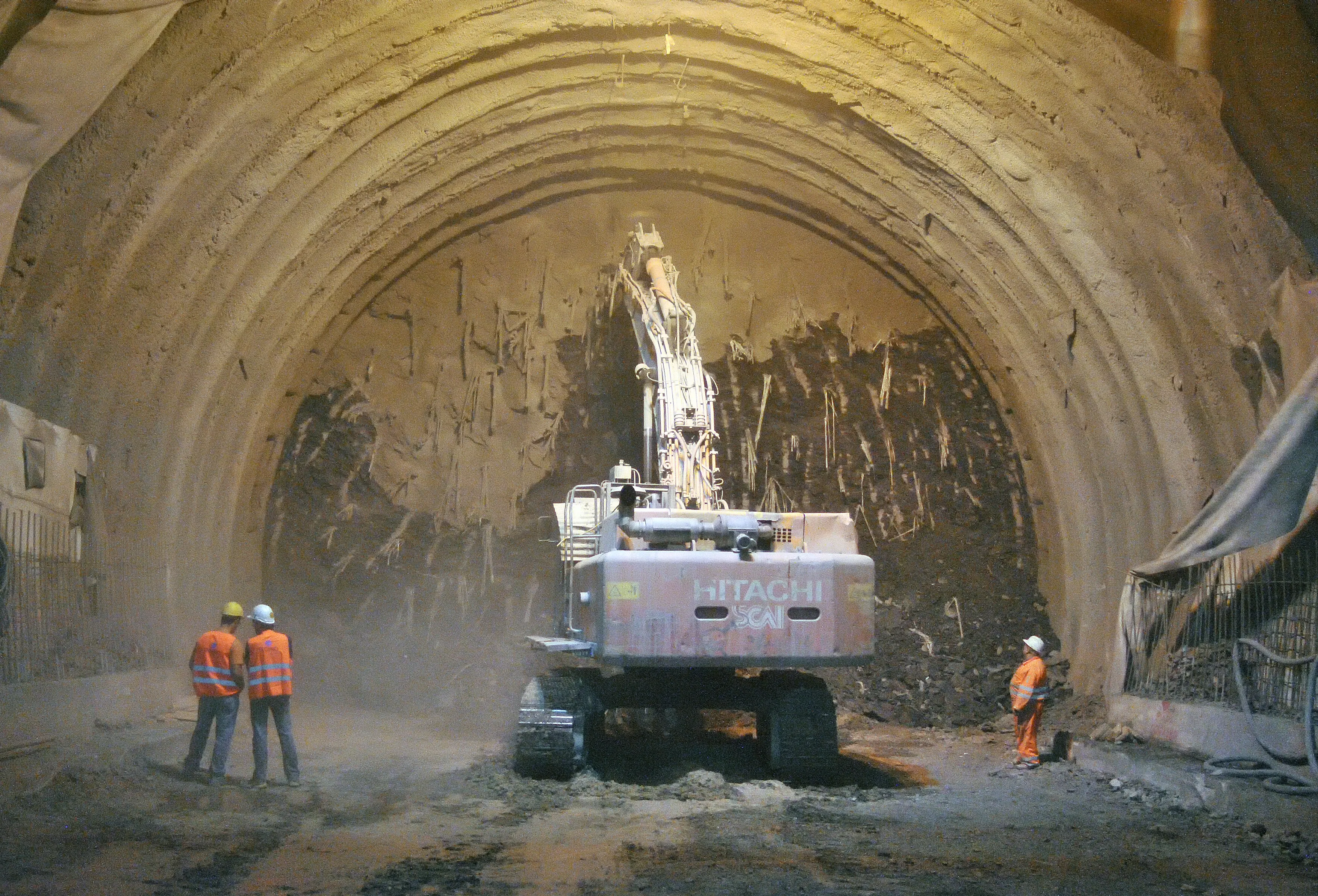
Indeco breakers have been instrumental in excavating the Serra Rotonda Tunnel along the new Salerno-Reggio Calabria highway in southern Italy - Lucio Garofalo reports
The A3 Salerno-Reggio-Calabria highway runs for some 443km, linking the A1 Milano-Napoli with the southernmost part of the country. A tunnel is a major link on this highway and was originally built between 1966 and 1974 in an area where road construction can be a challenge due to orography, geology and seismicity. Since 2001, the A3 has been benefiting from a major upgrade, with some existing sections being improved and others being replaced by a new parallel route. The work is around 90% complete at the time of writing.
The new route winds through a mountainous territory with over 500 bridges and viaducts and 200 tunnels. Due to the geological conditions, excavation of the tunnels has been almost entirely carried out by drilling and blasting or with the use of hydraulic breakers. The conditions along the route made the use of a tunnel boring machine (TBM) difficult due to a range of factors.
Both breakers and drilling and blasting were employed as they offered more suitable methodology for the conditions on the Serra Rotonda tunnel job site. The twin-tube Serra Rotonda Tunnel is located in Basilicata near the town of Lauria and forms part of the new A3 section contracted to GLF Spa. The north tube measures 3.7255km, plus sections measuring 150m and 7.1m at the north and south portals respectively. The south tube measures a total of 3.74km, plus 146.6m and 7.1m sections at the north portal and south portals respectively. Conventional excavation methods with breakers and blasting were selected due to the geological profile and also because in the south direction both tubes would lead out onto a viaduct under construction, ruling out the option of a TBM.
GLF subcontracted Castellano to carry out excavation work, with this specialist firm employing237 Indeco 7000 breakers through an access a third of the way into the tunnel. These units were used 1.156km into the north tube and 1.064km into the south tube, until running into limestone, graded calcarenite and dolomitic limestone, which are slightly fractured with uniaxial compression values of 70Pa. From there, the excavation method switched to drilling and blasting for an 806m section of the north tube and 753m of the south tube. Breakers were also used for a 344m section in the north tube and a 401m section in the south tube. Here, the geological profile (siliceous marl, argillite and calcilutite of poor consistency) did not lend itself to the use of drilling and blasting, due to the poor geomechanical characteristics of the rock mass and because gas had been detected during surveys. Instead, excavators fitted with explosion-proof systems were equipped with Indeco 7000 breakers. GLF assigned this work to contractor Technoscavi.
The 7000 breakers used in the Serra Rotonda Tunnel by both subcontractors performed reliably, despite the difficult underground conditions. Indeco’s novel intelligent hydraulic system played a key role by automatically varying the energy and frequency of the blows according to the hardness of the material, boosting productivity and overall performance. The system was a determining factor in the tunnel excavation when the breakers used by Castellano and Technoscavi took on rock masses that differed greatly in the degree of fracturing and hardness.
The A3 Salerno-Reggio-Calabria highway runs for some 443km, linking the A1 Milano-Napoli with the southernmost part of the country. A tunnel is a major link on this highway and was originally built between 1966 and 1974 in an area where road construction can be a challenge due to orography, geology and seismicity. Since 2001, the A3 has been benefiting from a major upgrade, with some existing sections being improved and others being replaced by a new parallel route. The work is around 90% complete at the time of writing.
The new route winds through a mountainous territory with over 500 bridges and viaducts and 200 tunnels. Due to the geological conditions, excavation of the tunnels has been almost entirely carried out by drilling and blasting or with the use of hydraulic breakers. The conditions along the route made the use of a tunnel boring machine (TBM) difficult due to a range of factors.
Both breakers and drilling and blasting were employed as they offered more suitable methodology for the conditions on the Serra Rotonda tunnel job site. The twin-tube Serra Rotonda Tunnel is located in Basilicata near the town of Lauria and forms part of the new A3 section contracted to GLF Spa. The north tube measures 3.7255km, plus sections measuring 150m and 7.1m at the north and south portals respectively. The south tube measures a total of 3.74km, plus 146.6m and 7.1m sections at the north portal and south portals respectively. Conventional excavation methods with breakers and blasting were selected due to the geological profile and also because in the south direction both tubes would lead out onto a viaduct under construction, ruling out the option of a TBM.
GLF subcontracted Castellano to carry out excavation work, with this specialist firm employing
The 7000 breakers used in the Serra Rotonda Tunnel by both subcontractors performed reliably, despite the difficult underground conditions. Indeco’s novel intelligent hydraulic system played a key role by automatically varying the energy and frequency of the blows according to the hardness of the material, boosting productivity and overall performance. The system was a determining factor in the tunnel excavation when the breakers used by Castellano and Technoscavi took on rock masses that differed greatly in the degree of fracturing and hardness.


